


As an important part of urban infrastructure construction, Isuzu fire trucks are responsible for protecting public safety. Isuzu fire trucks have the capabilities of rapid response, efficient fire extinguishing and rapid rescue, and have become an important support for the urban fire prevention system. Let's take a deeper look at the structure and use of an Isuzu fire truck, as well as the matters that require special attention when using it.
First of all, the structure of the Isuzu fire truck can be divided into several parts such as the body, power system, water tank system, foam device and communication system. The body of a fire truck is usually made of high-hardness steel plates and has strong impact resistance. There are multiple lockers and tool boxes on the body for storing fire extinguishing equipment and rescue tools. The car body can also be equipped with a light warning device to send out warning signals to remind traffic drivers to be vigilant.
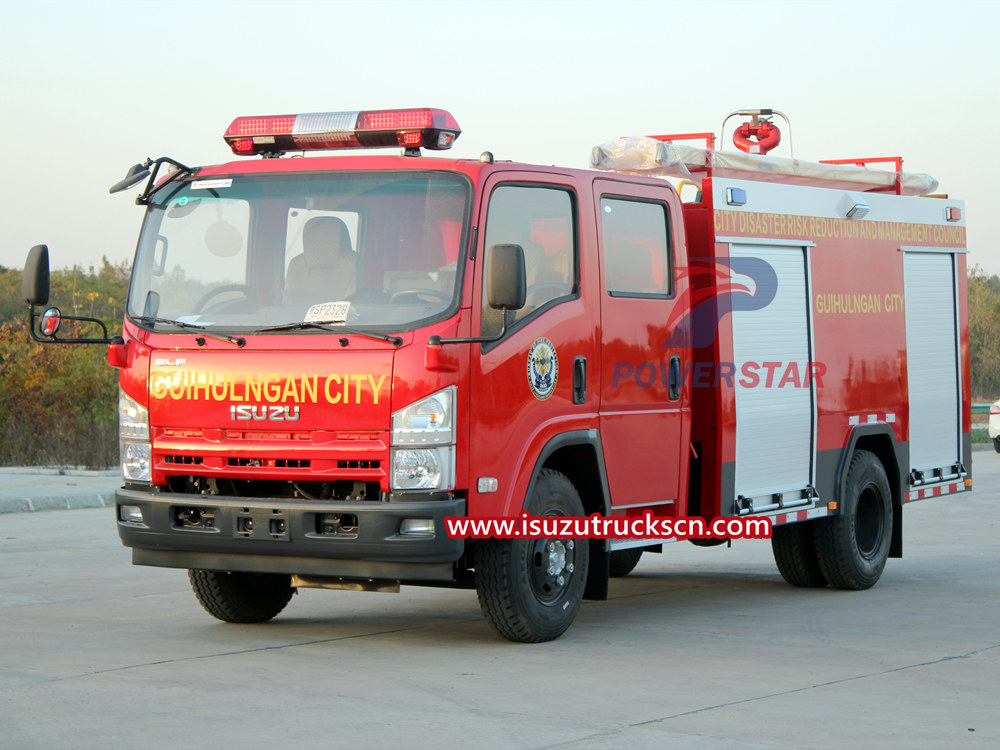
Isuzu fire trucks are usually equipped with a powerful power system to ensure that they arrive at the accident scene quickly. The power system generally consists of a diesel engine or a gasoline engine with high power and torque.
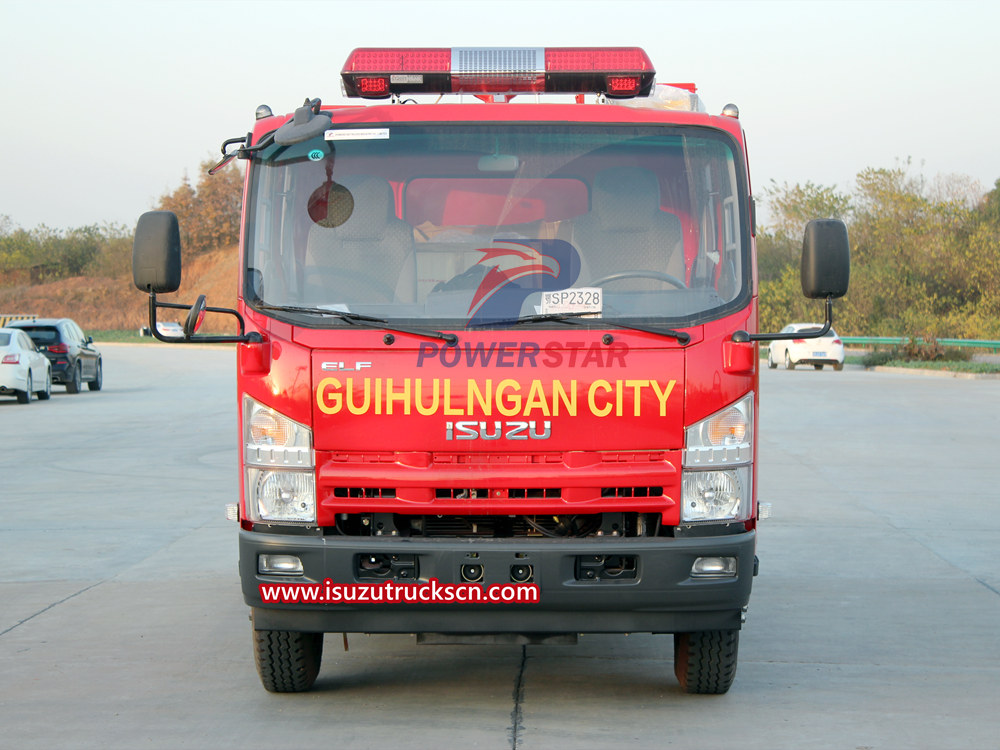
The water tank system of an Isuzu fire truck is its main fire extinguishing device. Water tanks are usually made of special materials that are resistant to high pressure and have capacities ranging from a few thousand liters to tens of thousands of liters. The water tank is equipped with a water pump and a water spray device, which can transport water to the fire scene and spray water to extinguish the fire.
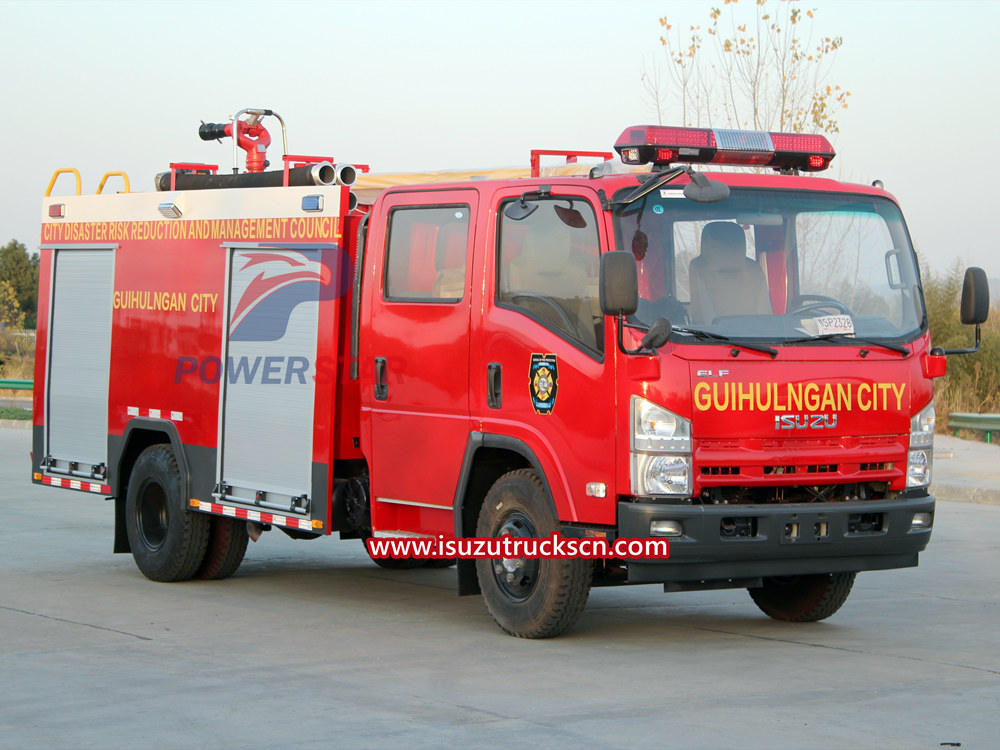
The foam device is one of the important components of the Isuzu fire truck. It consists of a foam liquid storage tank, a foam injector and a control system. Through the control system, the concentration and injection volume of the foam liquid can be adjusted to adapt to different types of fires.
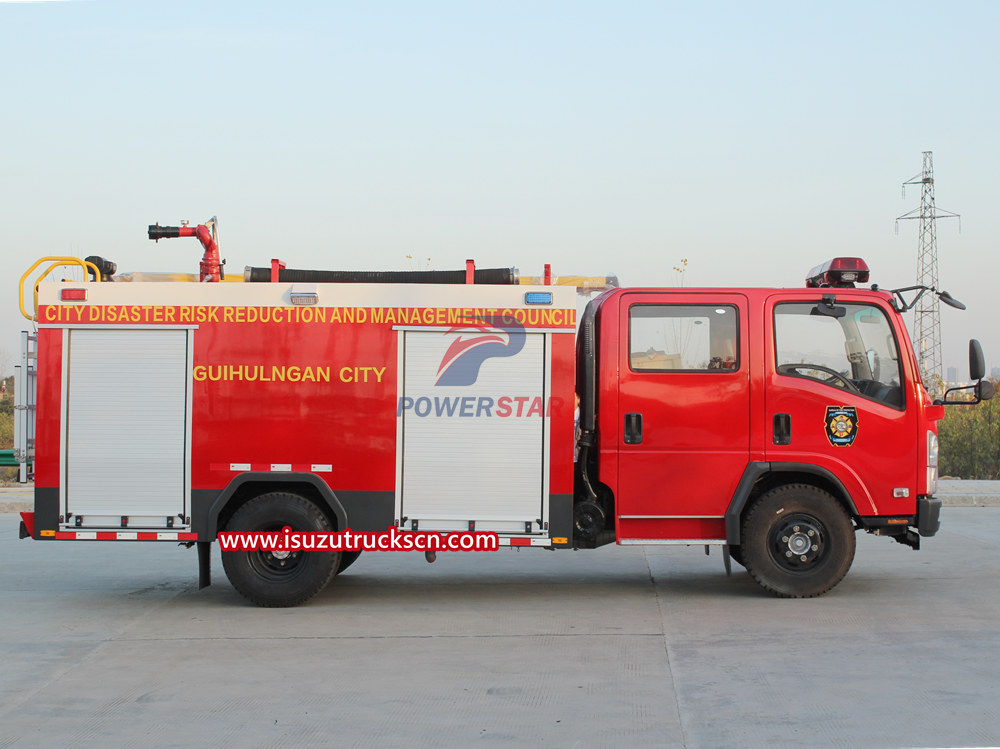
Isuzu fire trucks are equipped with advanced communication equipment to ensure timely communication with the command center and other rescue forces. Communication systems usually include radios and walkie-talkies, which can maintain contact during combat and obtain important instructions and information.
When using an Isuzu fire truck, you must first become familiar with the various components and functions of the vehicle. Understand the operating principles and usage of the vehicle, and master the correct operating steps to ensure that the Isuzu fire truck is put into use quickly and efficiently in emergency situations.

Isuzu fire trucks must be kept in good condition at all times while driving. Maintain and maintain vehicles in a timely manner to ensure the normal operation of each component. Regularly inspect important components such as water tanks, foam units and communication systems to ensure their reliability and safety.
During the fire rescue process, appropriate Isuzu fire trucks and fire-extinguishing media should be selected based on the nature and scale of the fire. For different types of fires, different types of fire trucks and fire extinguishing techniques must be flexibly used to achieve the best fire extinguishing effect.
Isuzu fire trucks need to work closely with other rescue forces when extinguishing fires or leaking dangerous goods. Communicate and collaborate closely with firefighters, medical rescue personnel and other response personnel to ensure the safety of the accident site.
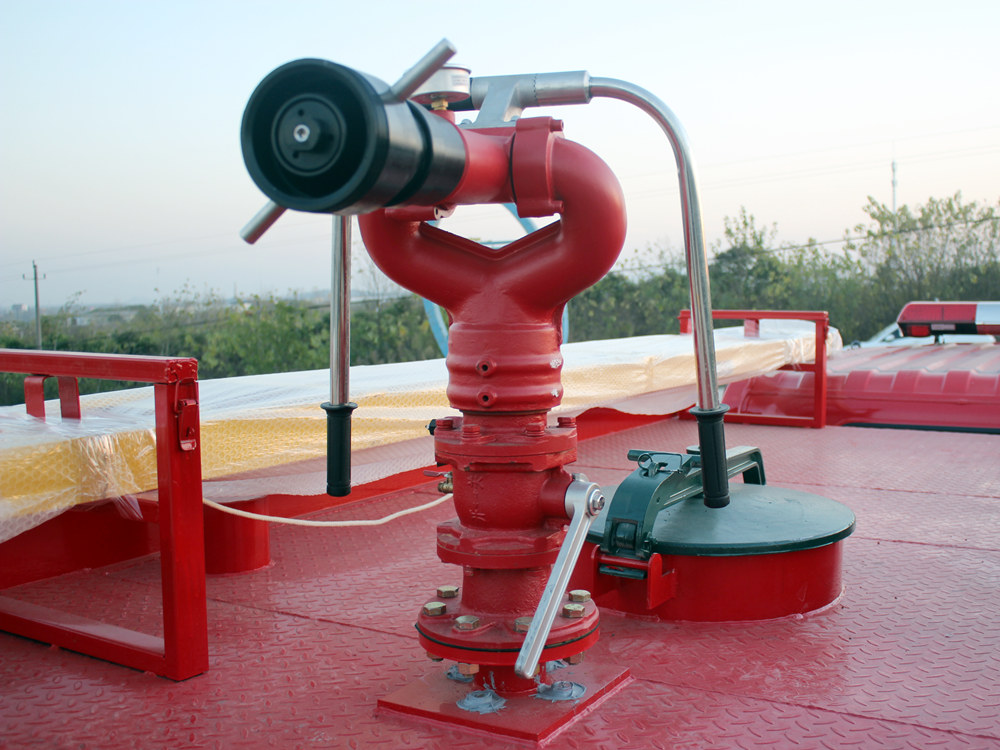
When using an Isuzu fire truck, protective measures must be taken according to the specific situation to protect the safety of yourself and others. Wear protective clothing, gloves and non-slip shoes, as well as protective hats and masks to protect yourself from fire and hazardous materials.
By understanding the structure and use of Isuzu fire trucks, as well as the matters that require special attention when using them, we can better play the important role of Isuzu fire trucks in urban infrastructure construction and bring better protection to public safety and fire prevention. great practical benefits.




